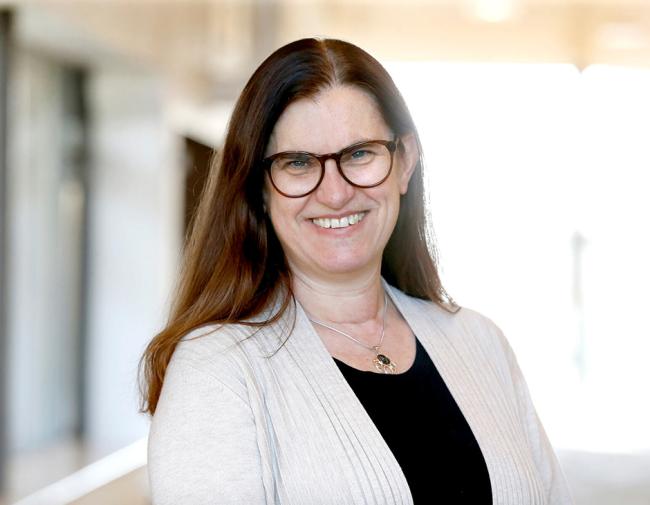Ellen Moons elected new Secretary General of the Royal Swedish Academy
2025-11-14Ellen Moons, Professor of Physics at Karlstad University, has been elected new Secretary General of the Royal Swedish Academy of Sciences. She will succeed Professor Hans Ellegren at the beginning of 2026.
– I am very happy for the trust I receive from the members of the Royal Swedish Academy of Sciences (KVA) and I look forward to the new role. Of course, it means that I will be spending much more time in Stockholm, but I will continue living in Värmland and keep some of my duties at Karlstad University part-time, says Ellen Moons.
Ellen Moons research focuses on novel materials for photovoltaic applications, including organic and polymer-based solar cells, as well as solution-processed perovskite solar cells.
Originally from Belgium, she moved to Sweden 25 years ago, joining Karlstad University, where she was appointed professor in 2011. In 2017 she was elected member of the Class for physics of the Royal Swedish Academy of Sciences. Since 2022, she has been a member of the Nobel Committee for Physics (serving as Chair in 2024). She is set to become the Academy´s first female Secretary General since its foundation in 1739.
– As a woman and a physicist, I have always carried with me the conviction that it is important to have role models – that younger people should see that the door is not closed. It is also not new to me to be a pioneer in different contexts. But of course, this is a milestone for the Academy of Sciences, and in fact it is strange that it has not happened earlier.
The Secretary General of the Academy is elected for a period of four years. This role involves leading the Academy’s activities and heading its secretariat.
Independent organisation
The Royal Swedish Academy of Sciences is an independent organisation whose overall objective is to promote the sciences and strengthen their influence in society. The Academy has a total of around 650 Swedish and foreign members. Its activities focus on representing science in society, influencing research policy and providing a scientific basis for public debate and decision-making. The Academy also recognises outstanding contributions to research, for example by awarding the Nobel Prizes in Physics and Chemistry, as well as the Prize in Economic Sciences, annually.
– Our mission is to promote the sciences and strengthen their influence in society, as well as safeguard the conditions for research. The time we live in now is very special, and I believe that a strong and independent voice that can stand for scientific integrity is becoming increasingly important, both nationally and, not least, internationally, says Ellen Moons.
Professor Ellen Moons was elected at the Academy’s General Meeting on 12 November.


